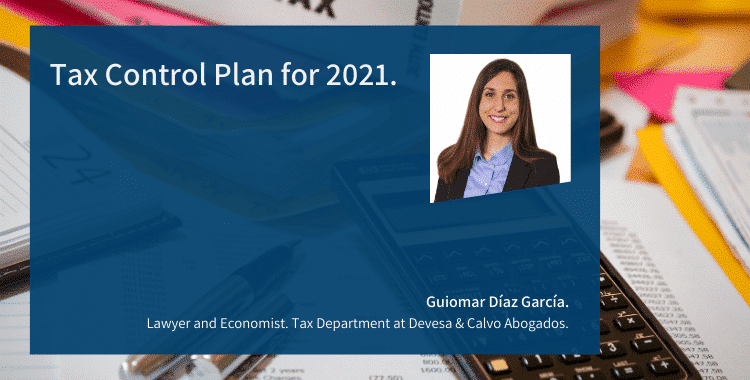
Tax Control Plan for 2021.
As every year, the Directorate – General of the AEAT publishes the general guidelines of the Annual Tax and Customs Control Plan in the BOE (Official Government Gazette), which establishes the criteria where the actions of the tax verification and inspection bodies will be based during each financial year.
On Monday the 1st of February, the lines of action were published in general terms, which will be listed in a non-exhaustive manner:
Within the digital transformation’s framework both, the administration and companies and, in general, of all taxpayers, special emphasis will be placed on controlling the use of equipment and computer programmes that allow any accounting systems alteration.
In order to prevent the unregistered economy, activities to combat undeclared activity will be strengthened, with special cash amount control used by companies; control actions in sectors whose main customers are end consumers; as well as control of the companies creation intended to channel income generated by individuals or family groups.
Taxpayers who have repeatedly established negative tax bases in their self-assessments, as well as deductions pending application of Corporate Income Tax, will continue to be checked. Regarding to Negative Taxable Bases, special attention will be paid to the bases pending offsetting, which the Tax Administration is entitled to check after ten years.
It is also intended to make progress in the verification of the digitalisation and activities inspection through the video connection of inspection activities, which will make it possible to shorten inspection periods and even extend its effects to the signing of tax assessments.
Internal verification actions will be based on multinational groups, large companies and tax groups (both for IS and VAT) in the activity sectors that have been less affected by COVID-19. International co-operation will also be promoted through information received from other countries and related-party transaction reports, with a particular focus on transfer pricing and transnational transactions.
In view of the huge e-commerce growth in 2020, special attention will be paid to this type of platform, as well as to the proper collection and VAT charging on this type of sale and purchase, which frequently involves individuals or legal entities not established in Spain. In addition to the creation of a VAT draft for companies, based on the provided information through the SII systems.
Also, as a result of the internet rising, a more exhaustive control will begin to be carried out regarding to cryptocurrencies and the income taxation from them. They must be reported to the Tax Administration on form 720 in order to create an internal database with which to compare transnational information.
Additionally, and within the taxpayer assistance’s framework, it is possible that for the 2020 income tax campaign, a tool will be implemented to predict errors in the tax return and warn taxpayers of them based on the data already in the possession of the AEAT, as well as tools derived from personal income tax regularisations carried out in previous years.
The aim is to make it easier for taxpayers to file their personal income tax returns, also making improvements to the already existing assistants in the securities portfolio, or to allow direct personal income tax data estimation for entrepreneurs.
Lawyer and Economist. Tax Department at Devesa & Calvo Abogados.
